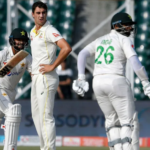Introduction to the 2012 London Olympics
Welcome to the thrilling world of Olympic cycling! The 2012 London Olympics brought together athletes from around the globe to compete in a spectacle of speed, endurance, and determination. In this blog post, we will take a ride down memory lane and revisit the incredible cycling events that took place during those historic games. From record-breaking moments to controversial controversies, we’ll explore how these events shaped the sport and left an indelible mark on its legacy. So hop on your virtual bike as we pedal through time and relive the excitement of the 2012 London Olympics Cycling Events! Get ready for an exhilarating journey packed with adrenaline-fueled action and unforgettable performances. Let’s dive in!
Cycling Events in the 2012 Olympics
The cycling events at the 2012 London Olympics were nothing short of thrilling. Athletes from around the world gathered to showcase their skills and compete for gold. From road races to track sprints, there was no shortage of excitement on two wheels.
One notable event was the men’s road race, where Alexander Vinokourov claimed victory for Kazakhstan in a stunning finish. The women’s road race also had its fair share of drama, with Marianne Vos of the Netherlands taking home the gold medal after a fierce sprint to the finish line.
On the velodrome, cyclists pushed themselves to their limits in pursuit of Olympic glory. Fans were treated to nail-biting moments as riders raced around at breakneck speeds. In particular, Sir Chris Hoy became a legend by winning two gold medals and becoming Great Britain’s most successful Olympian.
Mountain biking made its mark as well, with athletes battling challenging terrains and steep climbs. Jaroslav Kulhavy from Czech Republic took home gold in an intense battle against Nino Schurter of Switzerland.
These cycling events captivated audiences worldwide and left lasting memories etched into history. They showcased not only incredible athleticism but also determination and resilience that define Olympic spirit. And while we may never witness those exact moments again, they will forever inspire future generations of cyclists striving for greatness on this global stage.
Pictograms for, from top, BMX, mountain, road, and track cycling. |
|
| Venue | London Velopark (BMX, track) Hadleigh Farm (mountain) Central London, Surrey (road) |
|---|---|
| Dates | 28 July – 12 August 2012 |
| Competitors | Total: 505 48 (BMX) 77 (mountain biking) 210 (road cycling) 176 (track cycling) |
Record-breaking Moments in Cycling
Record-breaking moments in cycling are what make the sport so thrilling and captivating. In the 2012 London Olympics, several incredible feats were achieved that left audiences awestruck. One such moment came in the men’s team sprint event, where Great Britain shattered the world record with a time of 42.600 seconds! The trio of Chris Hoy, Jason Kenny, and Philip Hindes displayed exceptional speed and teamwork to claim this historic victory.
Another noteworthy record was set by Kristin Armstrong from the United States in the women’s individual time trial. At 38 years old, she became one of the oldest cyclists to win an Olympic gold medal in cycling! Her determination and skill propelled her to complete the course in a remarkable time of 37 minutes and 34 seconds.
But it wasn’t just individual records being broken; teams also made their mark on history. The Chinese women’s team pursuit squad showcased their dominance by obliterating their own world record not once but twice during these Games!
These record-breaking moments not only showcase extraordinary talent but also inspire future generations of cyclists to push their limits further. They serve as reminders that hard work and dedication can lead to achieving greatness on the global stage.
Stay tuned for more exciting updates about Olympic cycling events from other years!
Controversial Moments and Their Impact on the Sport
The 2012 London Olympics cycling events were not without their fair share of controversy. While these moments may have stirred up some heated debates, they also brought about important discussions and changes within the sport.
One such controversial moment was when British cyclist Philip Hindes crashed during the men’s team sprint event. Many questioned whether Hindes had deliberately caused the crash in order to secure a restart for his team. Despite the controversy, Great Britain went on to win gold in that event.
Another controversial incident involved Dutch cyclist Marianne Vos in the women’s road race. As she sprinted towards victory, there were allegations that she had cut across another rider, causing them to crash. The incident sparked a debate about sportsmanship and fair play.
These controversies highlighted some of the challenges faced by athletes in high-pressure situations and raised important questions about ethics and fairness in competitive sports. They also resulted in rule changes aimed at preventing similar incidents from happening again.
While controversial moments can be divisive, they ultimately contribute to the evolution of sports by prompting necessary discussions and reforms. In this case, they led to greater emphasis on rules enforcement and stricter penalties for unsportsmanlike behavior.
As we reflect back on these contentious moments from 2012, it is clear that they have left an indelible mark on Olympic cycling history. They serve as reminders of how controversies can shape not only individual events but also influence broader shifts within a sport.
Stay tuned for our next blog post where we will explore what lies ahead for Olympic cycling based on lessons learned from past controversies!
Legacy of the 2012 Cycling Events
The legacy of the 2012 London Olympics cycling events continues to shape the sport today. It was a time when athletes from around the world came together and pushed themselves to new limits, both physically and mentally. The impact of these events can still be felt in many ways.
One aspect of this legacy is increased participation in cycling. The excitement generated by the Olympic Games inspired countless individuals to take up the sport. From professional cyclists to weekend warriors, more people than ever before are getting on their bikes and experiencing the thrill of riding.
Another lasting effect is the focus on innovation and technology in cycling. The London Olympics showcased cutting-edge equipment and advancements that have since become commonplace in the sport. From aerodynamic frames to lightweight materials, these innovations have helped athletes improve their performance and break even more records.
The 2012 Games also brought attention to issues surrounding doping in cycling. While there were controversies during those events, they sparked important conversations about fair play and integrity within the sport. As a result, stricter anti-doping measures have been put in place, ensuring a cleaner future for competitive cycling.
Furthermore, hosting major sporting events like the Olympics often leads to infrastructure improvements that benefit local communities long after the games are over. In London’s case, investment was made into upgrading existing cycling facilities as well as building new ones, creating a lasting legacy for cyclists at all levels.
Perhaps one of the most significant legacies left behind by these events is inspiration. Watching elite athletes compete at such high levels can motivate others to pursue their own goals and dreams – not just in sports but also in various aspects of life.
In conclusion (as per your request), it’s clear that the legacy of 2012 London Olympics’ cycling events extends far beyond those few weeks back then: increased participation rates; technological advancements; discussions about fair play; improved infrastructure; and inspiring millions around globe will forever be remembered as part of this unforgettable chapter in cycling history.
Looking Ahead: What to Expect in the Future of Olympic Cycling
As we reflect on the incredible cycling events that took place during the 2012 London Olympics, it’s natural to wonder what lies ahead for this exhilarating sport. With each passing Olympics, advancements in technology and training methods continue to push athletes to new heights. So, what can we expect from future Olympic cycling events?
As global interest in cycling continues to grow, we can anticipate even more countries investing in developing their national teams. This will lead to increased competition and a higher level of racing at the Olympic Games.
Furthermore, with sustainability becoming an ever-important topic, it is likely that future Olympic cycling events will prioritize eco-friendly practices. We may see venues designed with sustainability in mind and efforts made to reduce carbon footprints associated with transportation and infrastructure.
In terms of technological advancements, we can expect continued innovation in bike design and equipment. The pursuit of faster bikes and more aerodynamic gear will undoubtedly drive athletes to break records previously thought impossible.
Additionally, there may be changes implemented regarding event formats or disciplines within Olympic cycling. As new disciplines gain popularity among cyclists worldwide (such as BMX freestyle), they could potentially be introduced into future Games.
Increased focus on gender equality within sports means that women’s cycling will likely receive even greater recognition and support moving forward. We can look forward to witnessing inspiring performances from female athletes on par with their male counterparts.
The future of Olympic cycling holds immense potential for growth and excitement. As fans eagerly await upcoming Games like Paris 2024 or Los Angeles 2028 Olympics where the sport takes center stage once again – one thing is certain: there are thrilling times ahead for all those who enjoy the beauty of two wheels!
Conclusion: The Unforgettable Legacy of the 2012 London Olympics Cycling Events
As we reflect on the cycling events from the 2012 London Olympics, it’s clear that these competitions have left an indelible mark on the sport. From record-breaking performances to controversial moments, this chapter in Olympic history will always be remembered.
The cycling events at the 2012 London Olympics showcased incredible athleticism and determination. Athletes from around the world pushed their limits and achieved remarkable feats. We witnessed new records being set, demonstrating that human potential knows no bounds when it comes to competition.
But beyond breaking records, these events also had a significant impact on the sport of cycling itself. They brought attention to issues such as doping and fairness in competition, sparking conversations that continue to shape how we approach sports today.
Furthermore, the legacy of these events extends far beyond their immediate impact. The success and excitement generated by the 2012 London Olympics inspired a new generation of cyclists worldwide. Young athletes who watched those races dreamed of one day standing on an Olympic podium themselves.
Looking ahead, we can anticipate even more thrilling moments in future Olympic cycling events. With advancements in technology and training techniques, athletes continue to push boundaries and challenge what was previously thought possible.
The unforgettable legacy of the 2012 London Olympics cycling events serves as a reminder of what is achievable when passion meets dedication. It reminds us that every race has its own story filled with triumphs and challenges—a testament to both individual talent and collective determination.
So let us celebrate not only those who stood atop podiums but also all participants who took part in this extraordinary event—whether they broke records or simply gave their best effort—as they collectively contributed to making history during those memorable days in London back in 2012.








